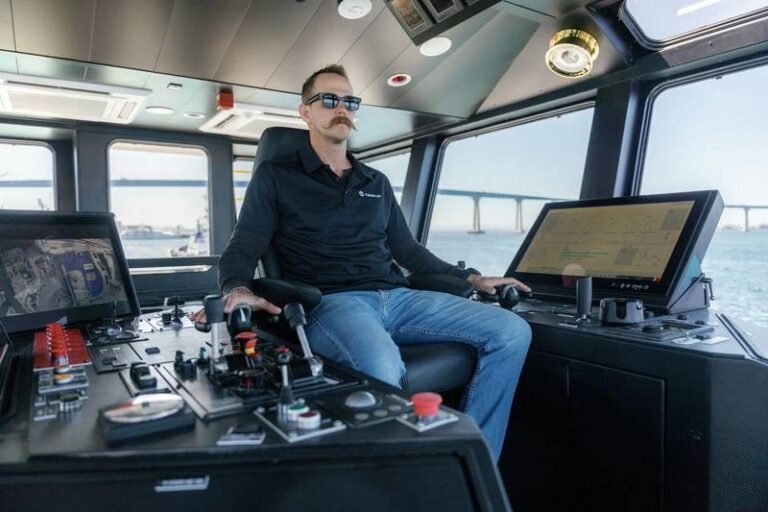Crowley—a legacy U.S. maritime and logistics powerhouse—is making waves with an innovative, people-first approach to workforce development. In a wide-ranging conversation on the Maritime Matters: The Marinelink Podcast, two of Crowley’s senior leaders — Megan Davidson, Chief People and Regulatory Officer, and Jim Bender, Program Manager of Workforce Development — unpacked how this 133-year-old company is not only adapting to change but leading the charge toward a more sustainable, inclusive and future-ready maritime workforce.
The maritime industry is at a workforce crossroad in attracting and retaining the future generation. But the crossroad is far from a surprise, rather an evolving situation that has been the fodder for boardroom debate and industry conferences for a generation or more. Technological evolution has been and remains a double-edge sword, allowing mariners to work more safely, more efficiently with fewer crew members, while at the same time the explosion in new technologies has afforded the younger generation with a myriad of new career opportunities.
The demand for skilled professionals and those willing to start from the ground floor to become skilled professionals is surging and digital disruption is redefining the workforce landscape.
Crowley—a legacy U.S. maritime and logistics powerhouse—is making waves with an innovative, people-first approach to workforce development. In a wide-ranging conversation on the Maritime Matters: The Marinelink Podcast, two of Crowley’s senior leaders — Megan Davidson, Chief People and Regulatory Officer, and Jim Bender, Program Manager of Workforce Development — unpacked how this 133-year-old company is not only adapting to change but leading the charge toward a more sustainable, inclusive and future-ready maritime workforce.
“We’re bringing in people from outside the industry who offer incredible breadth of knowledge. Pairing that with institutional experience helps us build a culture of learning and innovation.”
Megan Davidson, Chief People and Regulatory Officer, Crowley
A Maritime Legacy Reimagined for the Future
Crowley’s story has been well-documented, beginning in 1892 with an 18-foot white-hulled boat ferrying supplies to ships anchored in San Francisco Bay. Fast-forward to today, the company has transformed into a multinational force with operations in 36 countries and territories, five major business units, and approximately 7,000 employees. With more than 170 vessels under ownership or management, 45,000 containers in its fleet, and 3,500 freight moves per day, Crowley touches every corner of the maritime logistics ecosystem.
But the true driver of the company’s sustained success isn’t just scale — it’s people.
While Crowley has long and strong roots in the maritime sector, both Davidson and Bender are relative newcomers to maritime, hailing from industries like financial services, energy, and higher education. Their fresh perspectives are exactly what Crowley values in its modern workforce strategy, and indeed mirrors the long-held industry mantra that to effectively grow and evolve there must be an emphasis to lean on attracting talent, strategy and best practices from other industries.
“We’re bringing in people from outside the industry who offer incredible breadth of knowledge,” said Davidson. “Pairing that with institutional experience helps us build a culture of learning and innovation.”
Crowley is focused not just on filling roles, but on attracting people with agility, tech-savviness, and an openness to change. Davidson pointed out that increasingly, job seekers are drawn to companies with purpose and flexibility—qualities Crowley actively cultivates. “People want to feel connected to something meaningful. They want to know their work makes a difference.”
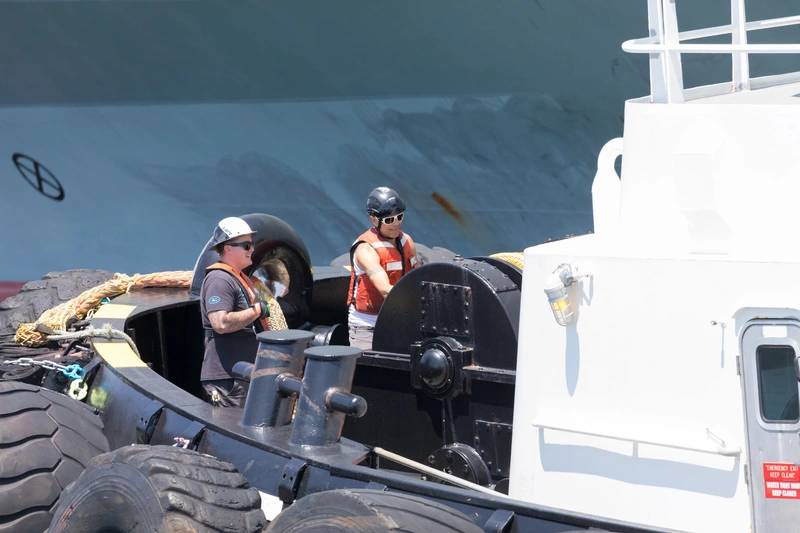
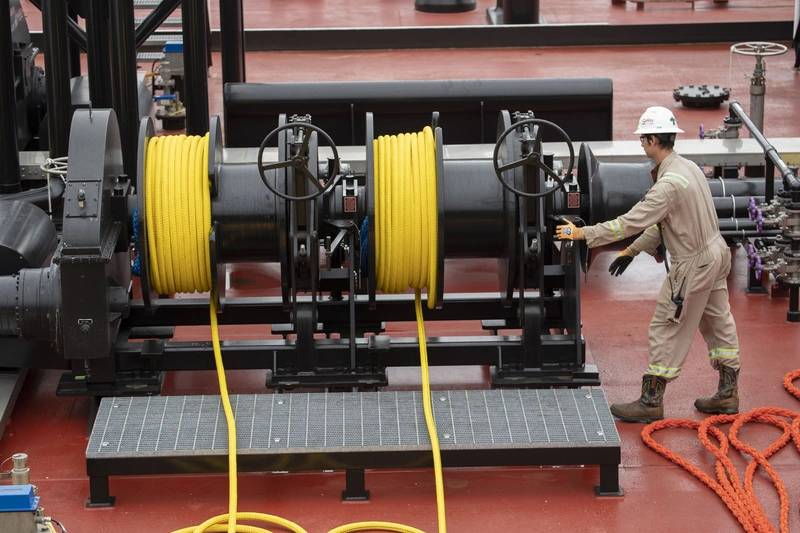
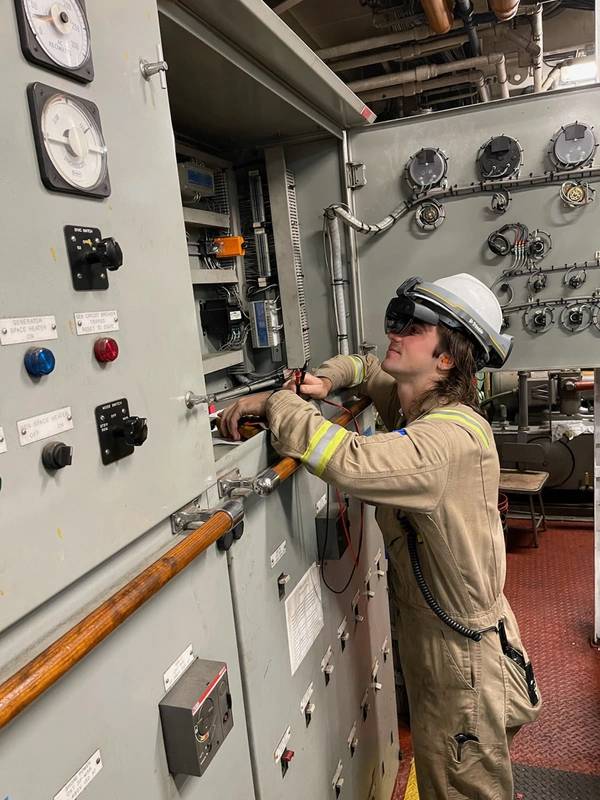 Across its fleet, Crowley trains mariners from the start in traditional maritime skills as well as the most advanced technology in the industry, up to and including the all-electric tug eWolf.
Across its fleet, Crowley trains mariners from the start in traditional maritime skills as well as the most advanced technology in the industry, up to and including the all-electric tug eWolf.
Images courtesy Crowley
Digital Tools, Human Impact
From a talent acquisition standpoint, Crowley is tapping into technology in powerful ways. Its applicant tracking system helps them analyze where candidates are entering and exiting the recruitment process, while a new CRM tool allows jobseekers to explore roles and company culture before they even apply.
This isn’t just about hiring—it’s about building relationships,” said Davidson. “It’s about helping people see where they fit, and giving them insight into what a career in maritime logistics could look like.”
But technology is only half the equation. The human element, particularly in engaging the next generation, is where Bender’s passion shines.
Start ‘em Young
‘One in ten students we met didn’t even know what ‘logistics’ meant,” Bender said. “Less than that could name a job in maritime. That’s a wake-up call.”
To change that, Crowley is taking a long-term, grassroots approach — partnering with organizations like Junior Achievement and Boys and Girls Clubs to introduce kids as young as kindergarten to the world of shipping. Crowley commissioned and employees read from and help distribute a custom children’s book titled Where Are You Going, Big Blue Truck?, giving each child a copy to take home — often their first book in English.
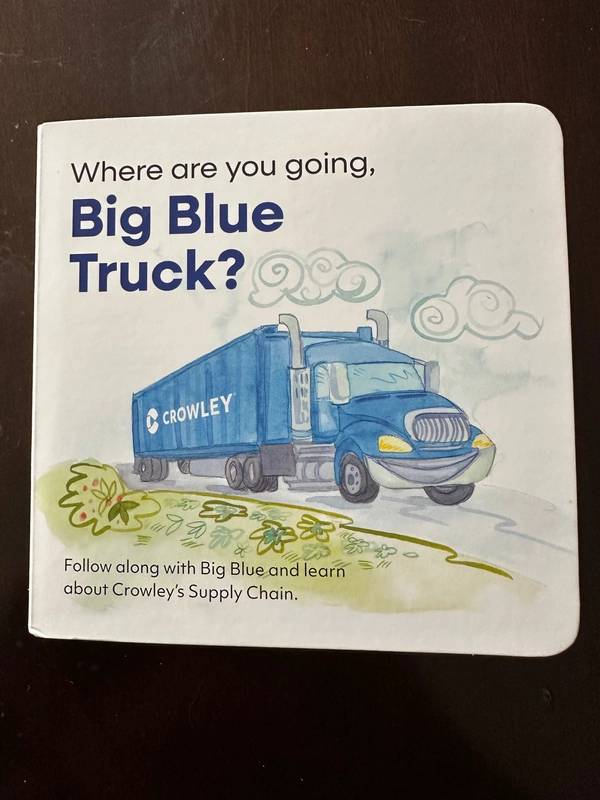 To attract ‘the next generation’, start them young. Crowley commissioned this book for distribution for the youngest students.
To attract ‘the next generation’, start them young. Crowley commissioned this book for distribution for the youngest students.
From elementary to middle school, Crowley brings in guest speakers and offers field trips to terminals and warehouses, giving students hands-on exposure to a world they’ve never imagined. The company also supports pathways into higher education, trade schools, and maritime academies, ensuring these early sparks of interest can lead to lasting careers.“This isn’t a one-off event. It’s a structured ecosystem,” said Bender. “We’re planting seeds early, nurturing them with real experiences, and helping students see a clear path into the industry.”
Culture: The Crowley Difference
At the heart of all these efforts is Crowley’s deep-rooted culture. From CEO Tom Crowley – grandson of the founder Thomas Crowley – personally greeting guests in the lobby, to offering employees paid volunteer time, the company cultivates a sense of ownership and purpose that’s rare.
“Our employees gave over 12,000 volunteer hours last year, impacting more than 9,000 community members,” Bender shared.
The Importance of Corporate Citizenship in Retaining Top Talent
Corporate citizenship plays a crucial role in attracting and retaining top talent in any organization. Companies that prioritize transparency, safety, and integrity create a positive work environment that employees are eager to be a part of. One such company that exemplifies this commitment is Crowley, a leader in the maritime industry.
According to Megan Davidson, Chief People and Regulatory Officer at Crowley, the company’s values of transparency, safety, and integrity are non-negotiables that are ingrained in its DNA. Davidson believes that these values not only attract the right people to the company but also help in retaining them. “That kind of corporate citizenship is a key part of what makes people want to stay here,” she stated.
In a time when the political landscape is polarized around ESG and DEI initiatives, Crowley remains steadfast in its mission. Davidson sees regulatory uncertainty as an opportunity to sharpen the company’s focus on what truly matters for its business continuity, its people, and its values. This includes reaching out to new communities and creating more inclusive pathways into maritime.
Jim Bender, Program Manager of Workforce Development at Crowley, highlighted the importance of reaching out to young people to educate them about career opportunities in maritime. Bender noted, “One in ten students we met didn’t even know what ‘logistics’ meant. Less than that could name a job in maritime. That’s a wake-up call.”
Tackling Maritime’s Unique Recruiting Challenges
Recruiting in the maritime industry presents unique challenges, as becoming a mariner requires a significant commitment in terms of time, expense, and lifestyle. Living on a vessel for extended periods is not suited for everyone, making retention a critical aspect of workforce development.
Crowley takes an industry-first approach to recruiting by partnering with unions, academies, and competitors to grow the talent pool collectively. Rather than engaging in talent wars or poaching, the company focuses on creating an environment where people want to stay. Davidson emphasized the importance of intentionality, transparency, and innovation in shaping the future of maritime workforce development.
As Crowley continues to evolve and adapt to change, its commitment to sustainability, inclusivity, and a future-ready workforce sets it apart in the industry. The company’s dedication to its employees, culture, and mission to connect the world positions it as a leader in shaping the future of maritime workforce development.
Listen to the Maritime Matters Podcast
For more insights into how Crowley is leading the charge towards a sustainable and inclusive maritime workforce, tune in to the Maritime Matters podcast featuring Megan Davidson and Jim Bender. Learn how this 133-year-old company is charting a new course towards a brighter future for the industry.

